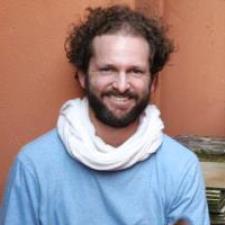
Emily S. answered • 10/22/21
Sharpen English and drawing skills with this chill, nerdy tutor
This is a tough sentence, but we can understand sentences like this by breaking them down and examining the key words.
intensification: Notice this starts with intense (minus the -e); if you don't know this word, look it up on Vocabulary.com (https://www.vocabulary.com/). Turning intense into a verb makes intensify, and turning that into a noun gives us intensification. So intensification is the act of becoming more intense.
global consciousness: Consciousness is the state of being awake, but also the state of being aware. If you are self-conscious, for example, you're painfully aware of all the mistakes or blunders you might make in front of other people. If you're environmentally-conscious, you're aware of how your habits and actions help or hurt the earth, so you might recycle more and cut down on food waste. If you're globally-conscious, what is it that you're aware of? We may find out more by looking at the other terms.
destabilizes: The root word here is stable, which means unchanging or reliable. Adding -izes turns it into a verb, and adding de- makes it negative. We can see this word has a similar meaning to unsettles.
nation-state framework: Framework is kind of hard to explain, but it's basically a system or set of rules by which we understand or practice something complex. For example, a diet is a framework by which someone might practice eating healthier. A moral framework would be what you consider when you decide whether an action is right or wrong. Nation-states are what we typically call countries, but especially those with a strong culture and group identity. So a nation-state framework would be the understanding that people all belong to different countries, and the differences among those countries and their group identities are important.
communal existence: When you turn community into an adjective, it becomes communal. So this term refers to a person's existence in a community.
This statement is talking about how people are self-identifying in a different way than they were before, especially when it comes to how they understand community. Which two understandings of community are being compared here?
Hopefully this helped somewhat. I notice you've posted a lot of challenging questions about societies and world politics. Can you tell us a little more about your class and what in particular you're struggling with?



